Fields of Study
- Criminal Behaviour
- Social, Cultural & Legal Theory
- Research Methodologies
- Criminal Justice
- Policing
Areas of Interest
- Vigilantism
- Lynching
- Policing
- State legitimacy
- Violence
- Punishment
Name of Postdoctoral Fellowship
Biography
Muhammad Asif focuses on the study of vigilantism, lynching, and state legitimacy. He earned his PhD from the University of Amsterdam, where he authored an outstanding dissertation that was recognized with the university’s Thesis Excellence Award. During his doctoral studies, he developed and published the Vigilante Rituals Theory (VRT)—a novel theoretical framework offering a comprehensive lens for analyzing vigilantism and lynching. As part of his academic training, he also held visiting doctoral positions at the University of Cambridge and Washington University in the United States. Dr. Asif has been the recipient of multiple national and international research grants. His work has been widely published in leading criminology journals, including The British Journal of Criminology, Theoretical Criminology, European Journal of Criminology, and Asian Journal of Criminology.
Courses Taught
- CRI492H1S: Advanced Topics in Criminology and Sociolegal Studies
- SOC346H5F: Special Topics in Criminology, Law, and Society
- SOC371H5S: Sociology of Punishment
- SOC351H5S: Politics and Violence: Spot the Difference
Refereed Publications
- Asif, M., Fayaz. M., Light, M. (2025). Blood revenge as an instrumental act to restore and uphold personal and cultural honor: A case study of Pashtun tribal areas in Pakistan. Under review.
- Tankebe, J., & Asif, M. (2025). Can police prevent vigilantism through anti-corruption reforms? Evidence from an experimental vignette study. Under review.
- Asif, M. (2024). Exploring potential mediators in the relationship between righteous anger and approval of vigilantism. International Journal of Comparative and Applied Criminal Justice. https://doi.org/10.1080/01924036.2024.2443656
- Asif, M., Fazal. H., Sarfraz, M., & Hassan, A. (2024). Investigating the moderators in the relationship between righteous anger and support for lynching. Asian Journal of Criminology. https://doi.org/10.1007/s11417-024-09444-y
- Asif, M., Fazal. H., & Akbar, M. S. (2024). Legitimacy of the courts: Evidence from a survey in Punjab, Pakistan. International Journal of Comparative and Applied Criminal Justice. https://doi.org/10.1080/01924036.2024.2310174
- Siddique Akbar, M., Asif, M., Rizwan Safdar, M., & Navid Yousaf, F. (2024). An exploratory study on the life recovery experiences of flood affected farmers in South Punjab-Pakistan. Journal of Environmental Planning and Management, 67(11), 2645-2667. https://doi.org/10.1080/09640568.2023.2197144
- Asif, M., Weenink, D., & Mascini, P. (2023). Engineering Vengeful Effervescence: Lynching Rituals and Religious–Political Power in Pakistan. The British Journal of Criminology, 63(6), 1441-1459. https://doi.org/10.1093/bjc/azac106
- Asif, M. (2023). Police legitimacy and approval of vigilante violence: The significance of anger. Theoretical Criminology, 27(2), 305-325. https://doi.org/10.1177/13624806221101369
- Safdar, M. R., Yousaf, F. N., Ahmed, A., Akbar, M. S., & Asif, M. (2023). Bans on women's voting: An intersection of caste, gender, and class in Punjab, Pakistan. International Area Studies Review, 26(3), 304-315. https://doi.org/10.1177/22338659231178698
- Asif, M., & Weenink, D. (2022). Vigilante Rituals Theory: A cultural Explanation of vigilante violence. European Journal of Criminology, 19 (2), 163-182. https://doi.org/10.1177/1477370819887518
- Tankebe, J., & Asif, M. (2016). Police legitimacy and support for vigilante violence in Pakistan. International Journal of Comparative and Applied Criminal Justice, 40(4), 295-314. https://doi.org/10.1080/01924036.2016.1217425
- Jackson, J., Asif, M., Bradford, B., & Zakar, M. Z. (2014). Corruption and Police Legitimacy in Lahore, Pakistan. British Journal of Criminology, 54(6), 1067-1088. https://doi.org/10.1093/bjc/azu069
Paper Presentations and Guest Lectures
- 2025 (March): Blood revenge as an instrumental act to restore and uphold personal and cultural honor: A case study of Pashtun tribal areas in Pakistan, presented in the Crime, Law, & Punishment Salon at the University of Toronto, Canada.
- 2024 (November): Investigating the moderators in the relationship between righteous anger and support for lynching, accepted at the 79th annual meeting of American Society of Criminology, San Francisco, United States.
- 2024 (November): An online guest lecture on vigilantism and lynching at the University of Amsterdam, the Netherlands.
- 2024 (August): Integration and significance of multiple factors toward the approval of vigilantism, presented at the 119th Annual Meeting of American Sociological Association, Montreal, Canada.
- 2023 (June): Public Approval of Vigilante Violence in Pakistan, accepted at the ISA World Congress of Sociology, Melbourne, Australia.
- 2023 (June): Justification and Legitimacy of Police Violence: A Cultural Explanation, accepted at the ISA World Congress of Sociology, Melbourne, Australia.
- 2023 (April): Public Approval of Vigilante Violence in Pakistan, accepted at the Annual Conference of the British Sociological Association, University of Manchester, United Kingdom.
- 2023 (April): Justification and Legitimacy of Police Violence: A Cultural Explanation, accepted at the Annual Conference of the British Sociological Association, University of Manchester, United Kingdom.
- 2020 (April): How does the crowd turn violent? A qualitative study of lynching incidents in Pakistan, accepted at the Annual Meeting of the American Society of Criminology, Washington, D.C., United States.
- 2018 (July): Vigilante violence: A cultural explanation. Presented at the Annual Meeting of the British Society of Criminology, Birmingham, United Kingdom.
- 2018 (June): Vigilante violence: A cultural explanation. Presented at Stockholm Criminology Symposium, Stockholm, Sweden.


